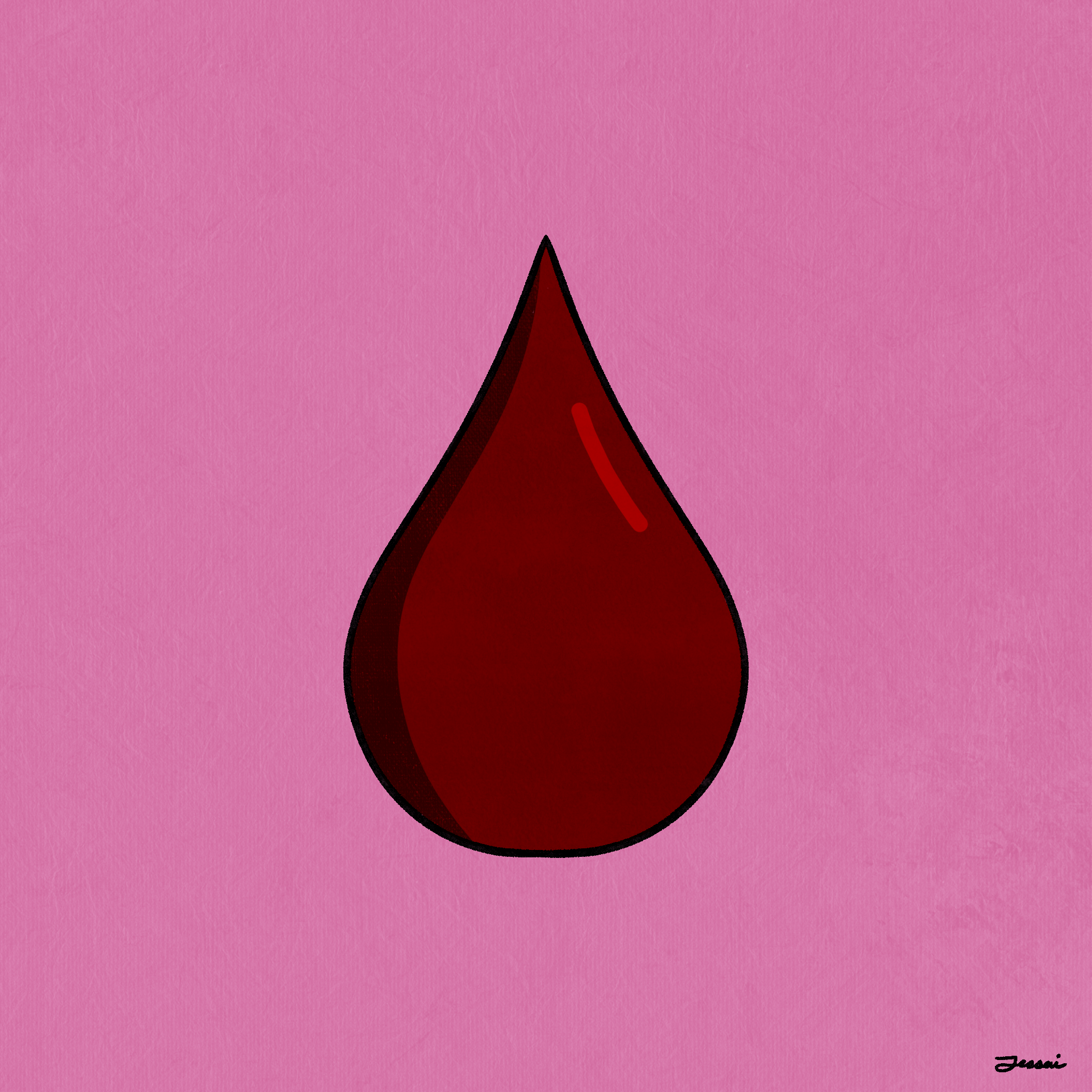
Jessai Flores
A friend of mine recently purchased a period cup. A period cup, for those of you who don’t know, is a reusable plastic cup that collects your period blood and empties into the toilet. It works like a tampon, just without the same hazard to the environment or risk of toxic shock syndrome. She sent me a picture of the blood in the toilet after she emptied it out.
The text message read, looks like a pollack #modernart. Kind of beautiful. No?
And it was. It was this spectacular sanguine color. A bit grotesque, but I realized I don’t think I’ve ever thought of a period as beautiful before. At first, you’re taught to covet your period — it’s a sign of maturity, lust, and womanhood. When did we learn to be ashamed of it? Feel disgusted in our bodies? There’s a line from Phoebe Waller Bridge’s “Fleabag” where Kristin Scott Thomas says, “Women are born with pain built in. It’s our physical destiny: period pains, sore boobs, childbirth, you know. We carry it within ourselves throughout our lives, men don’t.” Isn’t that unfair? And further, we’re made to feel ashamed and embarrassed of our pain
I recently celebrated my 22nd birthday, the ten-year anniversary of getting my first period. I come from an extended family of many, many women and a matriarchal grandmother. Everyone had advice to give and stories to dispense about their first periods, telling me my time would come soon. Pads were always lined up in the bathroom of my grandma’s house, neon yellow and green plastic wrapping folded into little squares. Mysterious cardboard contraptions meant to go you know where. And eventually, my time came. We were preparing to go on a family cruise for my grandparents’ 50th wedding anniversary, frantically packing our bags when it suddenly arrived like a tidal wave in the crotch of a pair of jean shorts, a Rorschach test in my days-of-the-week underwear. Was that… a butterfly? We were going to be swimming in the ocean — would my blood attract sharks? Is that how I was going to die? At 12 years old? My tombstone would read: So much life left to live, eaten by a great white… on her period.
Of course — somehow — everyone in my family found out. My great-aunt looked at me and said, “you’re a woman now, sorry about that,” and older cousins whispered, “congratulations,” as they held out spare tampons. But I didn’t feel good. I carried my pain in my abdomen, in my back. In the greasiness of my skin and my hair. I carried it in my anger, which seemed to bubble to the surface in tears of frustration.
As I’m getting older, I feel acutely aware of the signs of time on my body: a micro wrinkle on my forehead, soreness in my joints, a gray hair on my head. Each month, getting my period is a reminder of my fertility and a noticeable lack of pregnancy. It’s a sigh of relief, a weight off my chest. But it’s also a reminder of the possible — the possibility of getting pregnant. We’re lucky to be in Connecticut, where abortion is still relatively accessible, and to go to a school that provides the service for free. But it’s impossible to deny what it means to be a woman in America now. In a New Yorker essay titled “Is Abortion Sacred?,” Jia Tolentino wrote, “pregnancy occurs in such an intricate web of systemic and individual circumstances that only the person who is pregnant could hope to evaluate the situation and make a moral decision among the options at hand.” This intricate web of circumstances and personal evaluation, however, has been cast aside by the modern American judicial system. So, to recognize that I feel thankful for getting my period means to feel thankful that I don’t have to bear the weight of being a woman in America.







